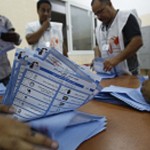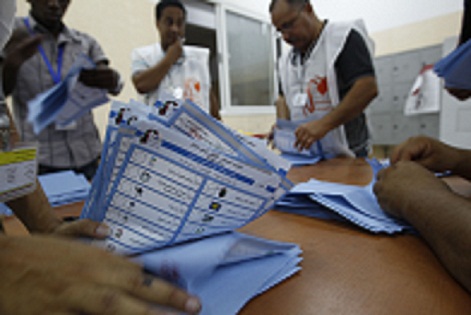
The results of Libya’s election are due to be released Wednesday. Those elected will form a General National Congress that will select a prime minister, write the constitution, and mark the beginning of a period of reconstruction in Libya.
Since Gaddafi’s fall, the North African country has been led by an unelected National Transition Council. However, reconstruction will be focused on rebuilding basic services, uniting the military, and jump-starting their stagnated economy.
The campaigning period was short, and with over 3,000 individuals running for spots, the Libyan elections have been intense. The Carter Center, an NGO that observes elections around the world, cited an atmosphere of excitement with Libyans embracing the chance at a political voice. They also observed that there was a widespread distrust of political parties and instead voters focused on individual candidates.
With democratic experience limited by Gaddafi’s 42-years of rule, voter education was important, but official programs were challenged by the short time frame. Many grassroots initiatives however, did manage to work to educate voters on the pragmatics and the importance of voting.
There were even larger barriers than a lack of experience: violence was a real threat in much of the country. After a civil war that saw the formation of numerous regional militias, many guns and fighters remain in a nation scarred by the absence of jobs and bitter social divides.
The most direct interference with the electoral process was in the east where armed opposition groups had been protesting the election for weeks. Their main issue is a lack of representation they felt in Tripoli, in the country’s west. These groups have pushed for a more federal structure consisting of autonomous regions in the west, east, and south.
In possibly the election’s most dramatic incident, a helicopter carrying election material was shot down only a day before voting began and the first day of elections was marred by the death of one person, killed in shooting near an eastern polling station. At the end of Saturday, though, the electoral commission’s head announced that everything was gong smoothly at 98% of the country’s polling sites.
Despite the uncertainty cause by so many candidates and so little procedural experience, preliminary results are indicating that unlike their Tunisian and Egyptian couterparts, Libyans may have voted for fewer Islamists and more liberals.
The Muslim Brotherhood’s Justice and Development Party has had some success in the south however, but has failed to garner as much support in the much more populous costal regions. Early results show a lead for the liberal National Forces Alliance party. Leader of the NFA and member of the NTC immediately responded to these reports with calls for national unity.
